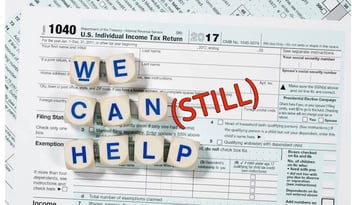 Winning a $1.26 billion Mega Millions jackpot is a dream come true, but it also marks the start of a series of choices that may determine a winner's financial destiny. For the California citizen who received last year's golden ticket, tax season will be anything but routine this year. With this large reward, cautious preparation is required to prevent turning fortune into tragedy.
Winning a $1.26 billion Mega Millions jackpot is a dream come true, but it also marks the start of a series of choices that may determine a winner's financial destiny. For the California citizen who received last year's golden ticket, tax season will be anything but routine this year. With this large reward, cautious preparation is required to prevent turning fortune into tragedy.
First steps: Create Your Dream Team
"It's critical to take a moment to process the win and avoid making rash decisions," says Andrea Williams, a financial management adviser at Northwestern Mutual. Williams recommends that winners immediately establish connections with four critical professionals: a financial adviser, a tax accountant, an estate attorney, and a therapist or life coach.
The benefits for working with a financial adviser, an accountant, and an attorney are evident; but why a therapist? History has shown that unexpected prosperity may be emotionally overpowering, causing feelings of isolation and worry. There is a documented ailment called as "Sudden Wealth Syndrome."
Surrounding oneself with trustworthy specialists may help lotto winners remain grounded and make sound decisions.
Lump Sum vs. Annuity: A Critical Decision
A lottery winner's first significant financial decision is whether to accept a lump sum reward of $571.9 million or a 30-year annuity.
"If you choose an annuity, it provides a consistent stream of income over time, which can be especially useful in managing wealth responsibly," says Greg McBride, CFA, Chief Financial Analyst at Bankrate. For younger winners, annuities may give long-term financial security, preventing them from depleting their riches too rapidly. In summary, it may protect against poor investments and rash actions.
On the other side, older winners or those with more financial knowledge may find a lump amount more appealing. If a winner takes the lump amount, they may invest it in real estate, a family trust, or another financial instrument.
Taxation: The Immediate Reality
No matter whatever compensation option the winner choose, taxes will take a sizable piece. Federal taxes on lottery wins are presently 37%, and California's highest state income tax rate of 13.3% will exacerbate the burden for last year's Mega Millions winner. A lump sum reward, for example, might result in the winner owing more than $200 million to the IRS alone.
This is where a tax accountant's knowledge is crucial. In a 2016 interview with the Dallas Morning News, billionaire Mark Cuban emphasized the significance of employing a tax counsel and avoiding financial mistakes. He also advised victors to resist pressure from friends and relatives for freebies.
Managing Sudden Wealth: More than Just Numbers.
Winning the lottery is both a financial and emotional struggle. Looking at previous lottery winners, the unexpected rush of wealth - and all that comes with it - may have a significant mental health impact. Taking a deep breath and stopping before making a choice is essential.
Many previous victors have faced intense pressure from both the public and their inner group. For example, Jack Whittaker, who won the $315 million Powerball jackpot in 2002, famously said, "I wish we had torn the ticket up." Whittaker's money resulted in litigation, broken relationships, and even personal sorrow.
Financial planners believe in establishing limits early and frequently. Experts propose setting up a private trust or limited liability corporation to receive wins secretly in jurisdictions that allow it. This additional layer of secrecy may protect winners against predators and reduce stress caused by unwanted demands for money.
Lessons from History: Big Wins and Losses
The cautionary stories of previous lottery winners emphasize the need of strategic preparation. According to a survey conducted by the National Endowment for Financial Education, approximately 70% of lottery winners become bankrupt within a few years. Stories like Abraham Shakespeare's, who won $30 million in 2006 only to be killed by someone taking advantage of his charity, serve as a warning tale about the dangers of mismanaging unexpected money, even if your intentions are pure.
Even high-profile winners, such as David Lee Edwards, who received $27 million in 2001, have made terrible financial judgments. Edwards spent lavishly on houses, automobiles, and drugs, emptying his money in five years. He had been living in a storage unit until he died in 2013.
These instances serve as a harsh reminder of the significance of expert assistance. Investing sensibly, making a realistic budget, and preparing for the future will help you avoid financial catastrophe. For many people, dealing with competent advisors who understand the specific problems of unexpected riches is critical to preserving financial stability.
Tying It Back to Tax Season
As tax season approaches, the $1.26 billion Mega Millions jackpot serves as a timely reminder of the importance of tax preparedness, even for individuals who do not own a winning ticket. Accountants and financial planners' experience is crucial whether it comes to managing unexpected riches, negotiating tax changes, or just assuring compliance.
For tax pros, the lottery victory exemplifies how complicated financial circumstances need cautious handling. Assisting clients with proactive planning and making educated choices may transform a difficult circumstance into a chance for success.
For the fortunate Mega Millions winner, the thrill of a billion-dollar payout is just the beginning. With the proper team, educated judgments, and a clear financial plan, they can convert their once-in-a-lifetime windfall into long-term security.
And what about the rest of us? It's a good reminder to approach tax season with caution and seek professional assistance to maximize our financial potential.



